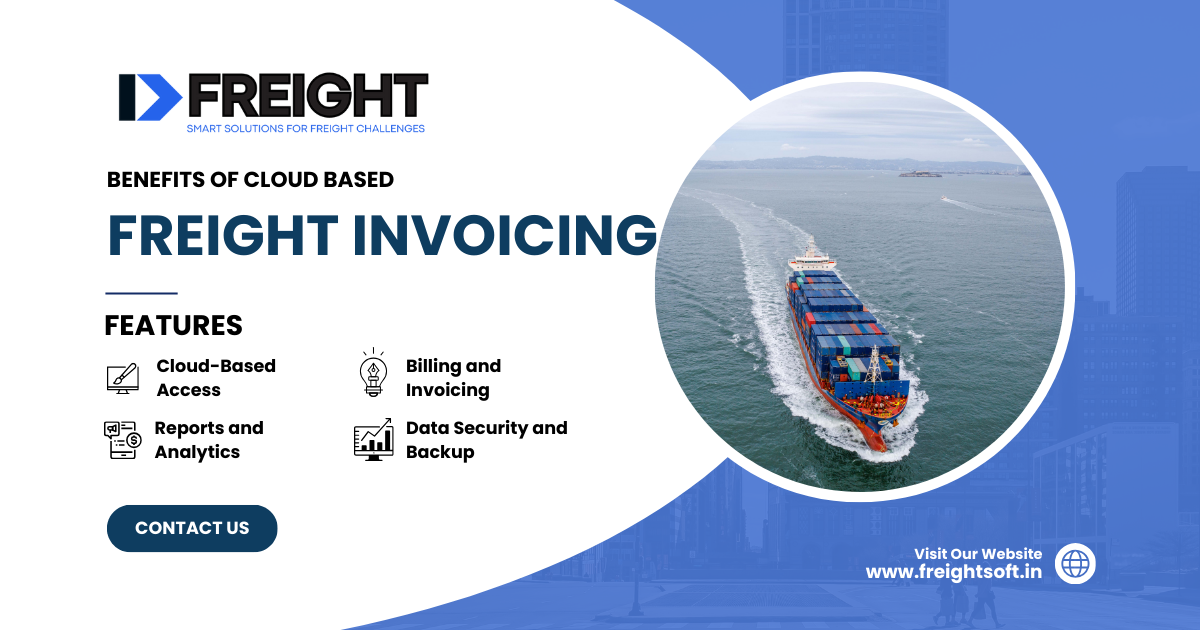
Top 10 Freight Forwarding Software Solutions for 2025
Top 10 Freight Forwarding Software Solutions for 2025
In the fast-moving logistics and shipping industry, freight forwarding software has become essential for smooth operations. Whether you're managing shipments, billing, or customer communication, the right software can transform your business.
We’ve compiled a list of the top 10 freight forwarding software solutions in 2025 to help you choose the best platform for your needs.
1. Freight Soft (India) ⭐
Best for: Cloud-based billing & operations for freight forwarders
Freight Soft is a smart, cloud-powered freight billing and operations software tailored for freight forwarders. It offers GST-compliant invoicing, shipment tracking, client dashboards, and a powerful reporting system — all in one easy-to-use platform.
Key Features:
- Automated freight invoice generation
- Real-time dashboard for shipment & billing
- GST-ready and multi-currency support
- Secure cloud access for teams
- Scalable for all logistics businesses
👉 Try Free Demo – Freight Soft
1. Cloud-Based Access
Modern freight software should be hosted in the cloud to allow secure, real-time access from any location. Cloud systems also ensure better data backups, team collaboration, and scalability for growing businesses.
2. Automated Billing and Invoicing
Look for software that can automatically generate GST-compliant invoices, track payments, and send reminders. This reduces manual errors and saves time for finance teams.
3. Customizable Dashboards
Personalized dashboards allow managers and team members to view the most relevant information at a glance—like shipments in transit, pending invoices, or revenue summaries.
4. Multi-User and Role-Based Access
Efficient software should allow multiple users with role-based access to ensure data privacy while maintaining operational collaboration across departments.
5. Automated Reports and Analytics
Software with built-in reporting tools can generate insights into shipment volumes, payment status, profit margins, and overall business performance—helping companies make informed decisions.
8. Integrated Document Management
Upload and manage key documents like invoices, bills of lading, customs forms, and certificates—all in one place. The right system should support digital signatures and document sharing.
9. Mobile Compatibility
Having access to software on smartphones or tablets allows logistics teams to work on the go. Mobile-friendly apps help track shipments, approve invoices, and manage operations in real-time.
10. Data Security and Backup
In freight forwarding, data loss can cause operational chaos. Ensure the software offers strong data encryption, regular backups, and user authentication to protect sensitive business information.
Conclusion
Choosing the right freight forwarding software is a game-changer. It can improve accuracy, speed up billing, enhance customer service, and simplify documentation. Evaluate tools that offer automation, cloud access, and robust reporting to future-proof your freight business in 2025 and beyond.